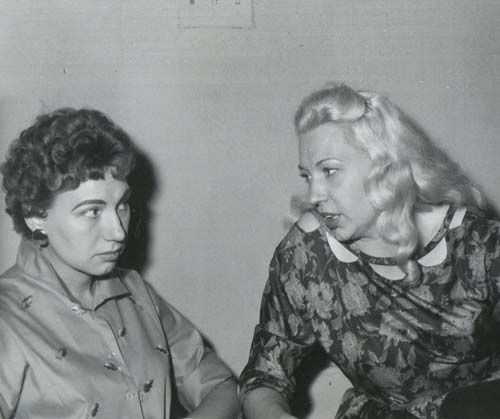
Image Credit:
bighappyfunhouse.com
Full disclosure: this blog post may include some self-disclosure.
Although my Rhetoric 309K course, Rhetoric of Confession, obviously revolved around public self-disclosures, I did not require any public self-disclosures of my students beyond whatever they chose to reveal in their Learning Record self-assessments and self-designed assignments. Nevertheless, when I tell people about the course, usually the first thing they want to know is whether any students confessed "anything weird." They seem to assume, perhaps from reading my academic work and my Tumblr, that my classroom would be a kind of group therapy session with feelings flying and uncomfortable revelations spilling out all over the place. In actuality, only a few students ever made their own confessions, and most of those happened on paper, only seen by myself and a few classmates. I told my Confession students almost nothing about myself.
Returning to the literature classroom this fall after two years of rhetoric, I was assigned to teach E314V: Gay and Lesbian Literature and Culture. Talking to professors and other graduate students who have taught identity-based courses, I heard over and over again the idea that "it's all about the text"--that we should discourage discussion of personal experience because student discussions should be grounded in the assigned texts. Focusing on the text is important for a number of reasons, but for me, the most important may be that while the text's accessibility may vary from reader to reader, if everyone in the room has read the same text, it's the object from which the discussion springs (I'll save the literary theory for another day). The text is the closest thing we have to common ground in the literature classroom. I don't want personal experience to be a bar to discussing it, nor do I want anyone to feel put on the spot because of personal experience they do or do not have. We can all read the texts and interpret them: let's start there. This is what I told my students on the first day.
I also told them I would never ask them to declare any identity labels for themselves, and that anyone in the class could be gay or straight or bisexual or pansexual or..?, anyone could be trans or cis, etc. etc. and obviously those identities inform our readings, but such disclosures are not required.
Then I told them I was going to break my own rule for two minutes. I acknowledged that, in the LGBTQ studies classroom (and other identity-based classrooms), instructors often don't explicitly identify themselves or their investments, often because they assume students will read them in certain ways. However some things aren't visible and sometimes it feels important to use our words. So I used mine, and came out as bisexual. Then I segued into some jokes and I also told them a bit about my academic work.
When I decided to come out to my students I thought I was doing it for my own comfort. At DWRL orientation, I told a friend/colleague I was planning to do it and she encouraged me, pointing out that probably most of my students have never heard someone in authority come out as bi and that it would mean something if I did. Which made it not (just) about my own comfort or credibility, but about setting a tone and creating a space. Which seems to have worked.
Although quite probably they would have anyway, several students came out in funny ways, in their info sheets on the first day, like the student who wrote "I'm also Jewish :)" or the one who just wrote, in the section where I ask if there's anything else I should know, "LGBT" with an arrow pointing to the G. A few students directly mentioned my statements, stating that they were coming out to me because I had come out to them.
Personal experience/identity has also come up in classroom discussions, with mixed results. A few examples: a student came out as straight in order to excuse her own ignorance of queer politics (and plead for enlightenment). Another student who rarely spoke in class wrote an impassioned blog post about Cherríe Moraga and the student's own experience of being Mexican American, which led her to share in class an anecdote about a friend who she believes is in the closet. Other students had opinions about this (why did she assume he was gay? because he was effeminate? etc.), which led to an interesting discussion about visibility and safety, which led us directly back to Moraga's essay, “La Güera,” which itself is a work of theory that could also be described as confessional. While at times personal anecdotes derail our conversations, and force me to ask the class, "what does this have to do with the reading?," for the most part, I've found that judicious self-disclosures by both instructor and students have made our discussions richer, helping us recognize each other as complex humans and reminding us of why we are in this classroom in the first place.


Comments
Laura, I really enjoyed this
Comment:
Laura, I really enjoyed this post. I think a lot of teachers, myself included, walk a line between wanting to be open with students and fearing our personal lives will come to dominate the teacher-student relationship. But in the end I think non-disclosure (particularly when it is motivated by fear) conveys a real lack of respect for our students. Why should we assume that our students, whatever their age, can't "handle" knowing that one of their teachers identifies as LGBTQ*? What assumptions are we making about their own beliefs, experiences, and intelligence? Strangely enough, some of the most affirming people I know have been my students.
this is beatiful. bravo,
Comment:
this is beatiful. bravo, laura!